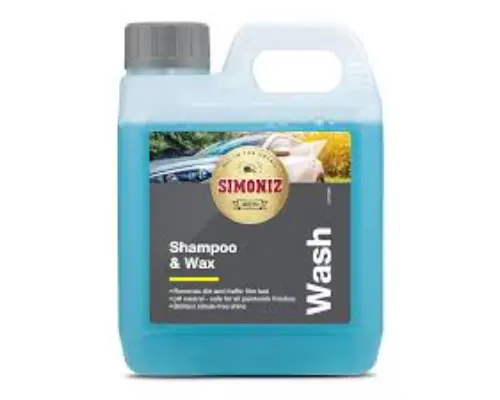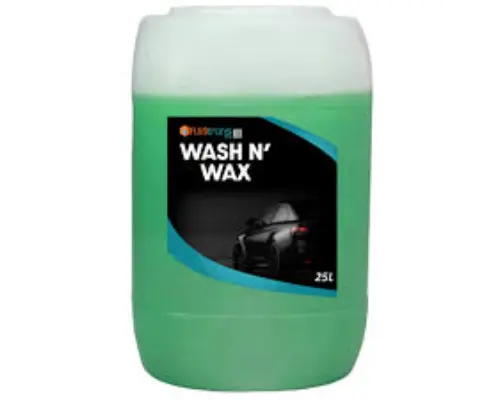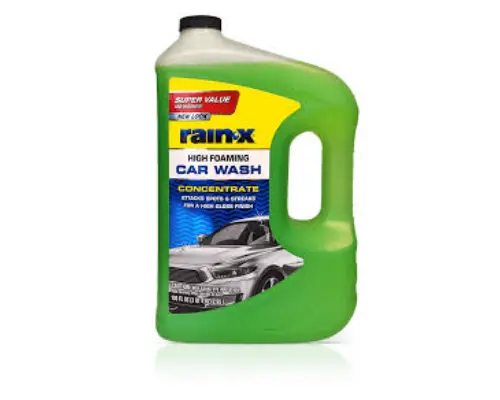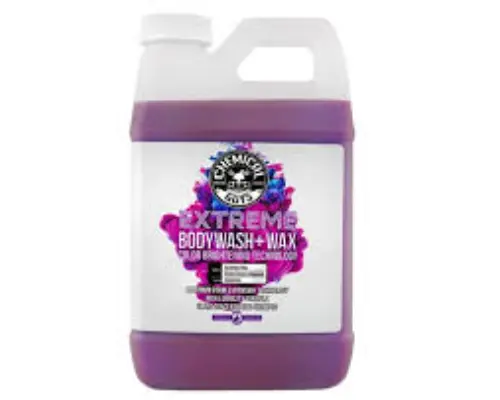Choosing the right car wash soap is more than just about cleaning—it’s about protecting your vehicle’s paint, saving money, and minimizing environmental harm. Let’s break down what you need to know.
Choosing the right car wash shampoo ensures a clean finish while protecting your vehicle’s exterior. Here’s a breakdown of common options:
Designed for routine cleaning, these pH-balanced formulas (typically 6–8 pH) gently remove dirt and grime without stripping wax or sealants. Ideal for frequent use, they’re safe on all paint types and are often the most affordable option.

These blends combine cleaning agents with light wax additives (like carnauba or polymers) to add a temporary protective layer as you wash. They’re perfect for boosting shine between waxing sessions, though the protection lasts only 2–4 weeks.

Bridging the gap between cleaning and advanced protection, hybrid car wash chemicals may include ceramic or synthetic polymers alongside degreasers. They offer longer-lasting hydrophobic effects than wax-infused car wash shampoo and work well on both coated and uncoated vehicles.

Tailored for ceramic-coated cars, these car wash shampoos often contain SiO2 (silicon dioxide) to reinforce the ceramic layer’s water-repellent properties. They’re pH-neutral and avoid harsh car wash chemicals that could degrade high-end coatings, making them ideal for maintaining long-term protection.

Most modern car wash chemicals are designed to balance effectiveness with safety. However, avoid products with hydrofluoric acid or phosphates, which can corrode metal, harm ecosystems, and irritate skin. Opt for biodegradable, non-toxic formulas labeled as “eco-friendly” or “water-safe.” For instance, touchless car washes often use alkaline solutions to break down dirt without harsh acids, relying instead on high-pressure water jets. The video is below:
Regular hair shampoo is a poor substitute. It contains sulfates and conditioners that leave residue on paint and strip protective coatings. Specific car wash shampoos are pH-balanced to clean effectively while preserving wax or ceramic layers. In a pinch, diluted baby shampoo (1:20 ratio with water) can work for handwashing—but stick to automotive products for long-term care.

Car wash formulas rely on carefully engineered chemicals to balance cleaning power with surface safety. Here’s a deeper look:
Surfactants: These molecules act like magnets—one end clings to dirt, while the other bonds with water. Anionic surfactants (e.g., sodium lauryl sulfate) are common for lifting mud and pollen, while nonionic surfactants tackle grease without foaming excessively.
Degreasers: Butyl-based solvents or citrus-derived limonene dissolve oil, tar, and road grime. Avoid harsh petroleum distillates, which can strip wax and damage rubber seals.
Chelating Agents: Ingredients like EDTA or citric acid bind to calcium and magnesium in hard water, preventing white streaks. This is critical in areas with mineral-heavy water supplies.
Wax Additives: Carnauba wax or synthetic polymers (e.g., polyacrylates) create a temporary hydrophobic layer, repelling water and enhancing gloss between full waxing sessions.
Touchless System Note: These setups often use alkaline solutions (pH 10–12) to break down organic debris chemically, paired with high-pressure water jets (up to 1,200 PSI) to avoid physical contact. While effective, prolonged use of potent alkaline blends can dull unprotected paint over time.

Wash-and-wax shampoos streamline maintenance by combining cleaning and protection. Follow these steps for optimal results:
Dilution Precision: Mix according to the label—typically 1 ounce of car wash shampoo per gallon of water. Use a dedicated measuring cup to avoid guesswork. Overdosing creates a sticky residue; too little reduces cleaning power.
Washing Technique: Start at the roof and work downward, using a soft microfiber mitt (not a sponge, which traps grit). Split the car into sections, rinsing the mitt frequently in a separate bucket to avoid scratching.

Rinse Thoroughly: Use a hose with a gentle fan spray to remove all suds. Leftover car wash chemicals or wax can dry into streaks, especially on glass or black trim.
Dry Strategically: Pat surfaces dry with a clean microfiber towel instead of air-drying. This minimizes water spots and helps the wax layer cure evenly.
Pro Tip: Work in a shaded area to prevent the car wash shampoo from drying too quickly. Direct sunlight can cause “flash drying,” leaving behind stubborn water marks or uneven wax distribution.
Proper dilution isn’t just a suggestion—it’s key to performance and cost control.
Concentrated Solutions: Using too much car wash soap leaves a filmy residue on paint and glass, which attracts dust and dulls shine. It also wastes product: a 1:400 ratio (common for rinseless washes) stretches one gallon into 400 gallons of usable mix.
Weak Mixes: Under-diluted car wash chemical fails to encapsulate dirt particles, increasing scratch risk during washing. For waterless washes, a rich 1:8 ratio ensures enough lubrication to safely lift grime without scratching.
Syringes or graduated pumps: Ideal for thick, concentrated shampoos.
Pre-marked bottles: Simplifies mixing for popular ratios (e.g., 1:64 for foam cannons).
Water hardness test strips: Adjust chelating agent ratios if your water has >150 ppm minerals.
Top-rated options balance cleaning power and protection:
pH Balance: Neutral (6–8 pH) is safest for daily drivers. Acidic/alkaline car wash shampoos suit specific tasks like decontamination.
Concentration: Higher-concentration products offer better value but require careful dilution.
Eco-Impact: Biodegradable formulas protect waterways—look for certifications like “Safer Choice.”
Finish Protection: Wash-and-wax blends add hydrophobic layers, reducing future cleaning effort.
Washing Method: Foam cannons need thick, sudsy car wash chemicals; handwashing works with lighter formulas.
Prices range from 5 to 30 per bottle, depending on quality and size. Budget options (e.g., Armor All) cost 5–10 but may lack durability. Mid-tier brands like Meguiar’s run 15–20 for gallon jugs, while premium ceramic-infused shampoos (e.g., Gyeon) hit 25–30. For professional washes, bulk purchases (5-gallon drums) drop costs to 0.50–1 per wash.
| Category | Brand Examples | Price Range (USD) |
| Budget | Armor All, Rain-X | $5 – $10 per bottle |
| Mid-Tier | Meguiar’s, Chemical Guys | $15 – $20 per gallon |
| Premium | Gyeon, Adam’s Polishes | $25 – $30 per bottle |
| Bulk (5-gallon) | Professional-grade products | $0.50 – $1 per wash |

Shinewash supplies automatic car wash machines and car wash soaps, if you’re interested in these, contact Shinewash experts now!